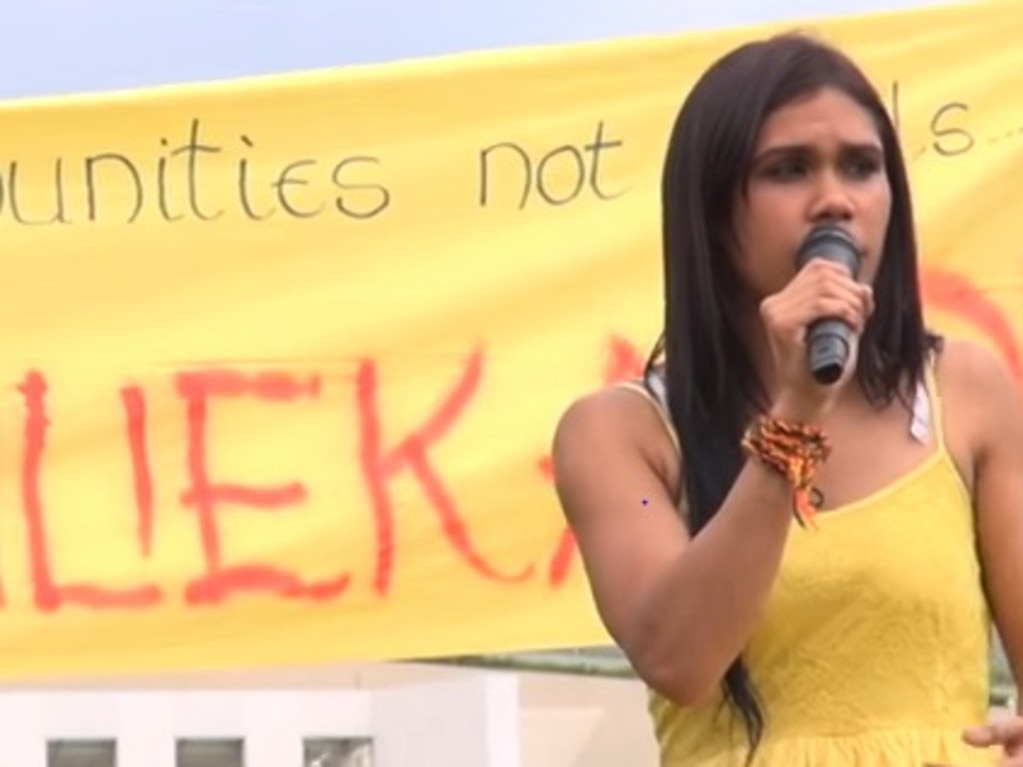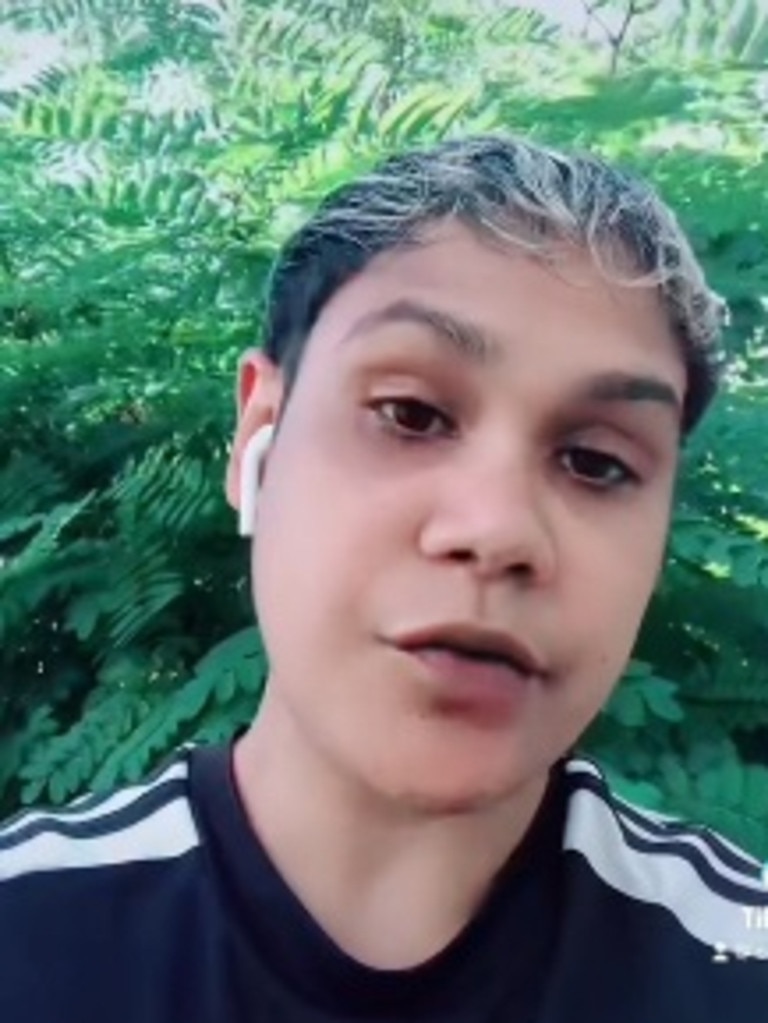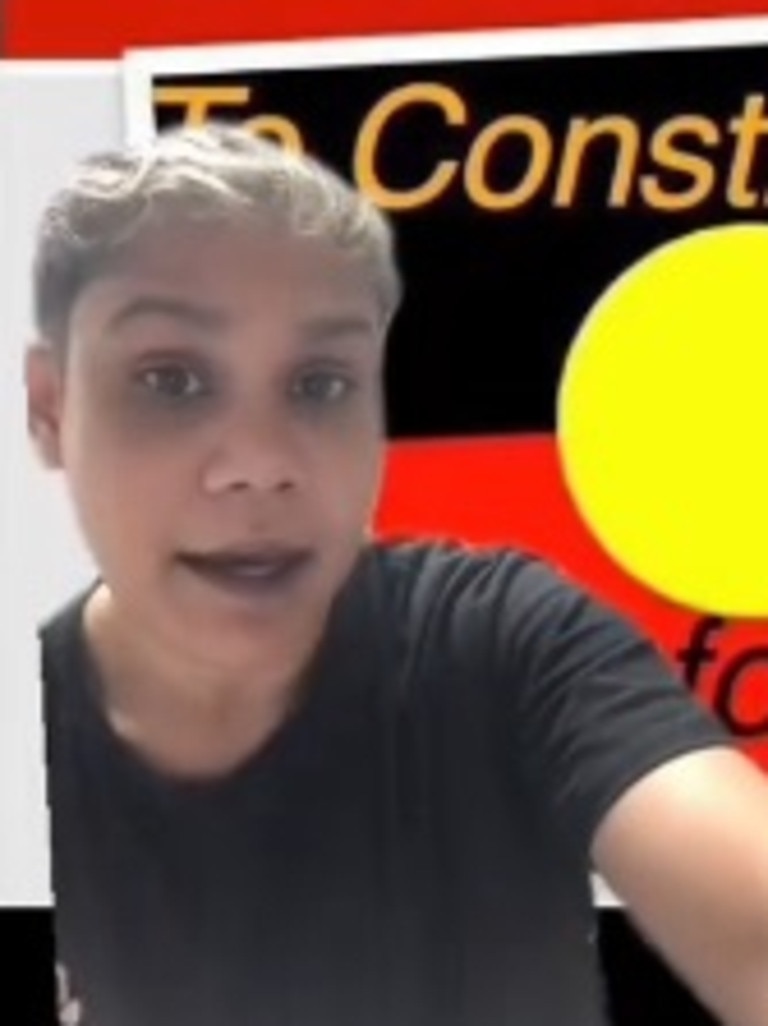Indigenous activist slams ‘Welcome To Country’ ceremonies
An Indigenous activist has revealed why she’s had enough of ‘Welcome to Country’ ceremonies – and why she’ll be voting No in the Voice to Parliament.
Welcome To Country ceremonies are losing their “cultural meaning” because they’ve become too mainstream, according to a leading Indigenous activist.
Kiescha Haines-Jamieson, from Western Australia, has built up a huge following on TikTok by discussing her opposition to the voice to parliament.
The No campaigner agreed with one of her followers who said they felt Welcome to Country ceremonies had started to become “tokenistic” in their workplace.
The activist replied that she felt the “same,” before elaborating that the ceremony had lost its meaning because it had become so common.

A Welcome to Country is a ceremony, typically performed by a local Aboriginal person of significance such as an Elder, to give consent to events taking place on their traditional lands.
But Ms Haines-Jamieson claims that the way it is used now isn’t as helpful as you might believe.
“It was never intended for opening football games or corporate or social events. It was an actually a practice used for ensuring permission and safe passage to and through tribal boundaries. Now, it’s been so mainstream it’s made people be apathetic,” she claimed.
Ms Haines-Jamieson went onto explain that “it’s losing its special purpose,” and she actually felt it was working against Indigenous people and that was impacting all of Australia.
“It is making people apathetic towards us which we don’t want,” she said.
Ms Haines-Jamieson is an outspoken critic of the push for a voice to parliament and has built up a huge fan base online by engaging directly with her followers’ questions..


The voice would aim to provide permanent representation and recognition for Aboriginal and Torres Strait Islander peoples in the Constitution.
While advocating for Aussies to vote No, she’s claimed that the sheer concept was so “un-Australian”.
“Constitutional recognition offers no human rights. It is binding in law never to be amended again in the future. Beware you Mob,” she said.
The Albanese government is yet to confirm the exact date of the voice referendum, but it will be held between October and December.
Any referendum must be held on a Saturday.
Australians will be asked to vote on the question: “A proposed law: to alter the constitution to recognise the first peoples of Australia by establishing an Aboriginal and Torres Strait Islander voice, do you approve of this proposed alteration?”






